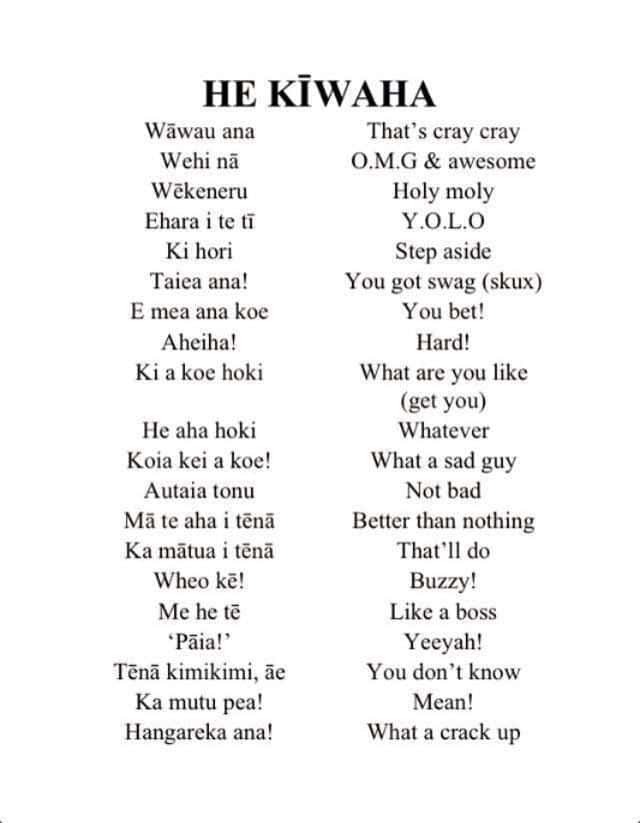Embracing Te Reo: Simple Maori Phrases Every Parent Should Know
Kia ora, lovely parents! Are you looking to add a bit of Te Reo Maori to your family’s daily life but not sure where to start? You’ve come to the perfect place! Learning a few basic phrases in Maori can be a fantastic way to show respect for the culture and is a fun and educational activity for you and the children. Let’s embark on this journey together, embracing Te Reo with open arms and hearts. Ready? Haere mai (come here) and let’s dive into some simple Maori phrases that will bring joy and learning to your whanau (family)!
Why Learn Maori Phrases?
Before we jump in, let’s take a moment to understand why learning Maori phrases is important. Not only does it help to preserve and promote an incredibly rich language, but it also allows us and our children to gain insight into the Maori worldview—a perspective that is intertwined deeply with New Zealand’s heritage and identity.
Greetings and Farewells
One of the easiest and most practical places to start is with greetings and farewells. These are phrases that you can use daily, and they’ll quickly become a natural part of your vocabulary.
- Kia ora – Hello! Used as a greeting or to say thank you.
- Tena koe (to one person) / Tena korua (to two people) / Tena koutou (to three or more people) – Greetings to you.
- Haere mai – Welcome! Come!
- Haere ra – Goodbye (to someone leaving).
- E noho ra – Goodbye (to someone staying).
- Ka kite ano – See you again/See you later.
Common Courtesies
Next, let’s move on to some common courtesies—phrases that are perfect for showing respect and kindness in everyday situations.
- Aroha nui – With deep affection; often used when signing off a message or card.
- Ma te wa – Bye for now / see you later.
- Ng? mihi – Thanks/acknowledgements.
- Whakamihi – To give thanks or to congratulate.
- Manaaki – To show respect, generosity, or care for others.
Teaching these phrases to your children not only helps them communicate in Maori but also instills values of respect and gratitude, fundamental aspects of Maori culture.
Family and Relationships
Ah, the heart of every home – the family! Here are some Maori terms related to family members and relationships that you can start using right away.
- Whanau – Family. This term encompasses the extended family and emphasizes the collective aspect of the family unit.
- Matua (father) / Whaea (mother) – Parents.
- Tamaiti – Child.
- Tamariki – Children.
- Tama / Tamahine – Son / Daughter.
- Tuakana – Older sibling of the same gender.
- Taina – Younger sibling of the same gender.
- Teina – Younger sibling of a different gender.
- Kaumatua – Elder or elders, typically refers to grandparents or older generation.
Incorporating these words into everyday conversations at home can strengthen not only the family’s vocabulary but also their connection to Te Reo and, thus, to New Zealand’s cultural heritage.
Isn’t it wonderful to think how just a few words here and there can make such a big difference? Not only are you learning a new language, but you’re also showing your kids the beauty of cultural diversity and respect. Remember, every word counts, and every phrase shared is a step towards a more inclusive and understanding world.
Now, let’s keep the waiata (song) of learning going with more useful Maori phrases for daily life situations in the next section of our guide…

5 Things Parents Should Know in Preparing to Teach Maori Phrases
As we continue to enjoy the journey of incorporating Te Reo Maori into our home, there are a few things to keep in mind that will help facilitate this learning process. Here are five essential tips:
1. Start with Pronunciation
Maori pronunciation can be quite different from English, so it is essential to start with the correct sounds. There are only 15 Maori sounds, making the pronunciation easier once you get the hang of it. Practice the vowels ‘a’, ‘e’, ‘i’, ‘o’, ‘u’, which are pronounced as ‘ah’, ‘eh’, ‘ee’, ‘aw’, ‘oo’, respectively. Encourage your children by learning and practicing these sounds together!
2. Make Learning Fun
Children learn best when they’re having fun, so consider incorporating Maori phrases through songs, games, and stories. There are many resources available online, including apps that are designed for children and make learning Te Reo an enjoyable experience.
3. Be Consistent and Patient
Language learning is a gradual process, and it’s the little steps that lead to big leaps over time. Consistency is key. Try to use the Maori phrases consistently throughout the day, and be patient both with yourself and your children as you learn.
4. Use the Language in Everyday Contexts
One of the most effective ways to learn is to use Te Reo Maori in your daily life. Label items around the house in Maori, practice phrases during mealtimes or playtime, and encourage your children to respond to you in Maori whenever they can.
5. Embrace the Culture
Language is deeply connected to culture, so embracing Maori customs and learning about the traditions can deepen your family’s understanding and appreciation of Te Reo. Attend local events, learn about the historic significance of places and engage with the Maori community if possible.
As you involve these five things in your family’s Te Reo Maori learning journey, you’ll find that your connection to the language and culture grows stronger. Remember, learning Maori phrases is not just about the words themselves; it’s about participating in and appreciating the vibrant culture that has been an integral part of New Zealand for centuries.
Ready to learn more? Let’s broaden our horizons with additional phrases and expressions that can make your everyday family interactions even more special in the following section of this guide. Keep tuned, and let the spirit of curiosity lead the way!
.
See more great Things to Do with Kids in New Zealand here. For more information see here
Disclaimer
The articles available via our website provide general information only and we strongly urge readers to exercise caution and conduct their own thorough research and fact-checking. The information presented should not be taken as absolute truth, and, to the maximum extent permitted by law, we will not be held liable for any inaccuracies or errors in the content. It is essential for individuals to independently verify and validate the information before making any decisions or taking any actions based on the articles.




